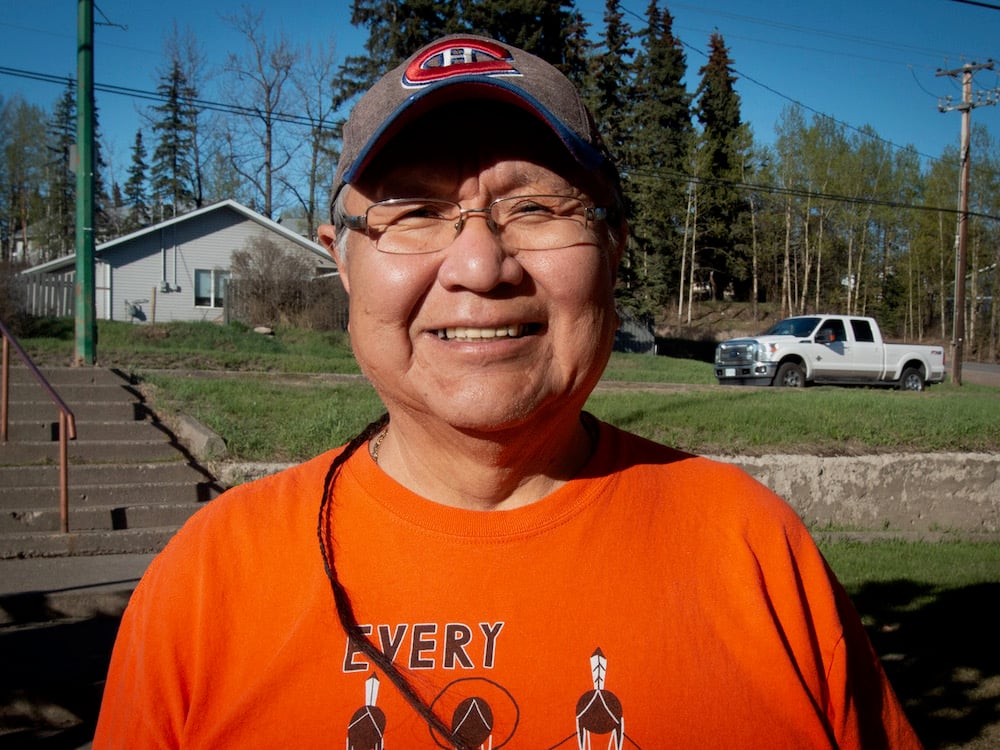Witnesses testifying on behalf of First Nations complainants in a human rights inquiry into the RCMP’s investigation of historic child abuse say they received mysterious calls and visits from RCMP in the weeks leading up to the hearings.
Two witnesses from the Wet’suwet’en First Nation and Lake Babine Nation made the comments while testifying last week at a Canadian Human Rights Tribunal hearing in Burns Lake. The tribunal is examining whether the RCMP discriminated when it investigated complaints of sexual, physical and emotional abuse at two northern B.C. schools in the late 1960s and early 1970s.
Both witnesses said that, despite never hearing from police during its 18-month investigation, which began in 2012 and followed a complaint of sexual abuse by a member of Lake Babine Nation, officers came to their door a month or two before the hearing saying they wanted to discuss the decade-old allegations.
The witnesses had both attended Immaculata Elementary School in Burns Lake and had firsthand knowledge of the alleged abuse, they said.
“I did not know, or wasn’t even told, that it was the [Department of Justice], the lawyers for the RCMP, that I was talking to,” Wilf Adam told the tribunal. “Not at one point did they tell me that they were lawyers for the RCMP.”
When the RCMP was investigating a decade ago, Adam was the elected Chief of the Lake Babine Nation, a position he held for 18 years, he testified. In September 2012, as the investigation was underway, Adam spoke publicly in the media about the physical abuse he witnessed and experienced at Immaculata and Prince George College.
Despite his public acknowledgement of the abuse, he said he never heard from police during the investigation — something he found both surprising and frustrating.
“I had a very good relationship with the RCMP,” Adam said, adding that he considered the local staff sergeant a friend. “And none of this was ever brought up to me.”
But about a month before he testified at the Canadian Human Rights Tribunal hearing on May 8, Adam said a police officer unexpectedly arrived at his home while he was out. The officer followed up with a phone call the next day and asked him to speak with an “investigator,” he said.
He spoke with the person “a couple of times,” he testified, before learning it was actually a lawyer with Canada’s Department of Justice, which is representing the RCMP at the hearing.
In response to The Tyee’s questions, the department confirmed it had met with community members prior to the hearings but denied it had misled anyone.
“In late March, Department of Justice counsel were meeting potential witnesses in advance of the CHRT hearing, as well as community leaders and members,” senior media relations advisor Ian McLeod said in an email. “The meetings with witnesses and community leaders/members were entirely voluntary, with all witnesses having been informed of the Department of Justice’s role representing the RCMP and that they were under no obligation to speak with them,” McLeod said.
He said lawyers did not meet with the complainants, who are represented by their own counsel.
The RCMP referred The Tyee’s questions to the Department of Justice.
A communications advisor for the Canadian Human Rights Tribunal declined to provide its policy around respondent counsel approaching the complainant’s witnesses, saying it is “not able to provide this type of legal information or advice” or comment on matters before the tribunal.
The complainants, six members of the Lake Babine Nation, took their concerns over the RCMP’s investigation to the Canadian Human Rights Commission in 2016, saying the force had discriminated against them and did not make accommodations for Indigenous communities’ historic mistrust of police. The commission referred the complaint to the Canadian Human Rights Tribunal for inquiry in 2020.
Lawyers representing the RCMP at the ongoing hearings said that while officers heard stories of abuse during their investigation, there were not sufficient grounds for charges. The alleged abuser, whose identity is protected by a confidentiality order, taught physical education at Immaculata and Prince George College in the late 1960s and early 1970s. He has vigorously denied the allegations.
Elsie Tom, a member of the Wet’suwet’en First Nation, also testified last week that she was perplexed by visits from RCMP officers just prior to the hearing.
Tom said that, about a month and a half before the hearing, a police officer came to her door at about 6 p.m. asking her for a statement. During her testimony, she also shared her recollections of witnessing a sexual assault at Immaculata school when she was a child. But she hadn’t heard from police until the recent visit, she said.
“They talked to me and said they wanted to get a statement from me, that they would come pick me up and bring me in to make a statement. They never came back. It confused me that they didn’t come back,” she said.
When asked if the person had said who they were or what the statement was for, Tom said, “All they mentioned was that I may have witnessed a sexual abuse in the past, is the only words that they used.”
Another witness, Ronnie West from Lake Babine Nation, testified that he also got a recent call from someone at the RCMP but declined to talk to them. “I didn’t even bother asking [the person’s name]. I should have,” he said.
Lawyers for the RCMP didn’t address the comments in cross examination.
As last week’s hearings drew to a close, the complainants’ lawyer, Karen Bellehumeur, told the tribunal that another witness, who was unable to testify due to health concerns, had an experience "almost identical in that there was no contact by the RCMP until a couple of months ago."
Bellehumeur told The Tyee she was unable to comment beyond what she’d communicated to the tribunal.
The hearings began May 1, with the first two weeks of testimony held in-person at the Ts’il Kaz Koh Gathering Place in Burns Lake. They continue online from May 23 to June 1 and June 12 to 22. ![]()
Read more: Indigenous, Rights + Justice

















Tyee Commenting Guidelines
Comments that violate guidelines risk being deleted, and violations may result in a temporary or permanent user ban. Maintain the spirit of good conversation to stay in the discussion and be patient with moderators. Comments are reviewed regularly but not in real time.
Do:
Do not: